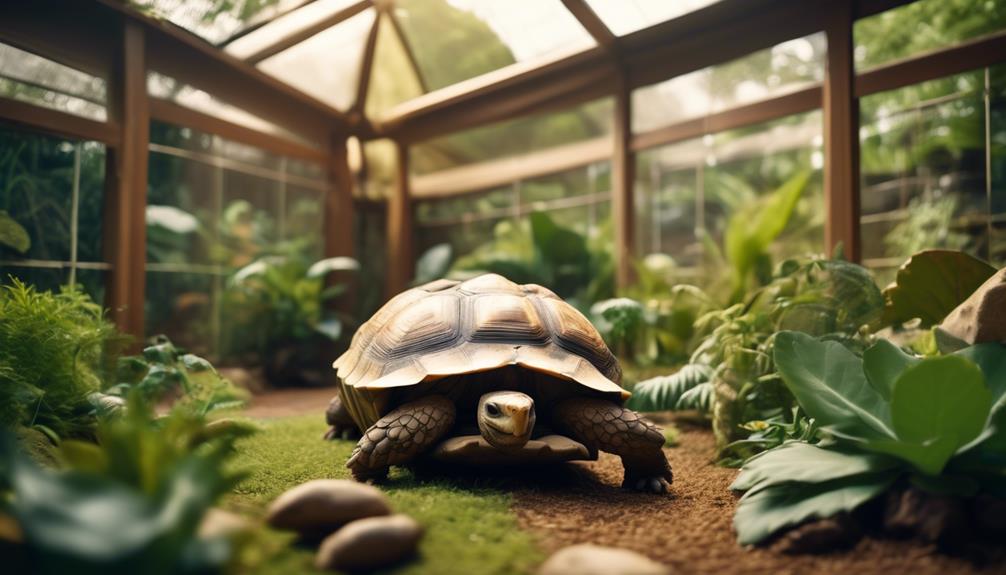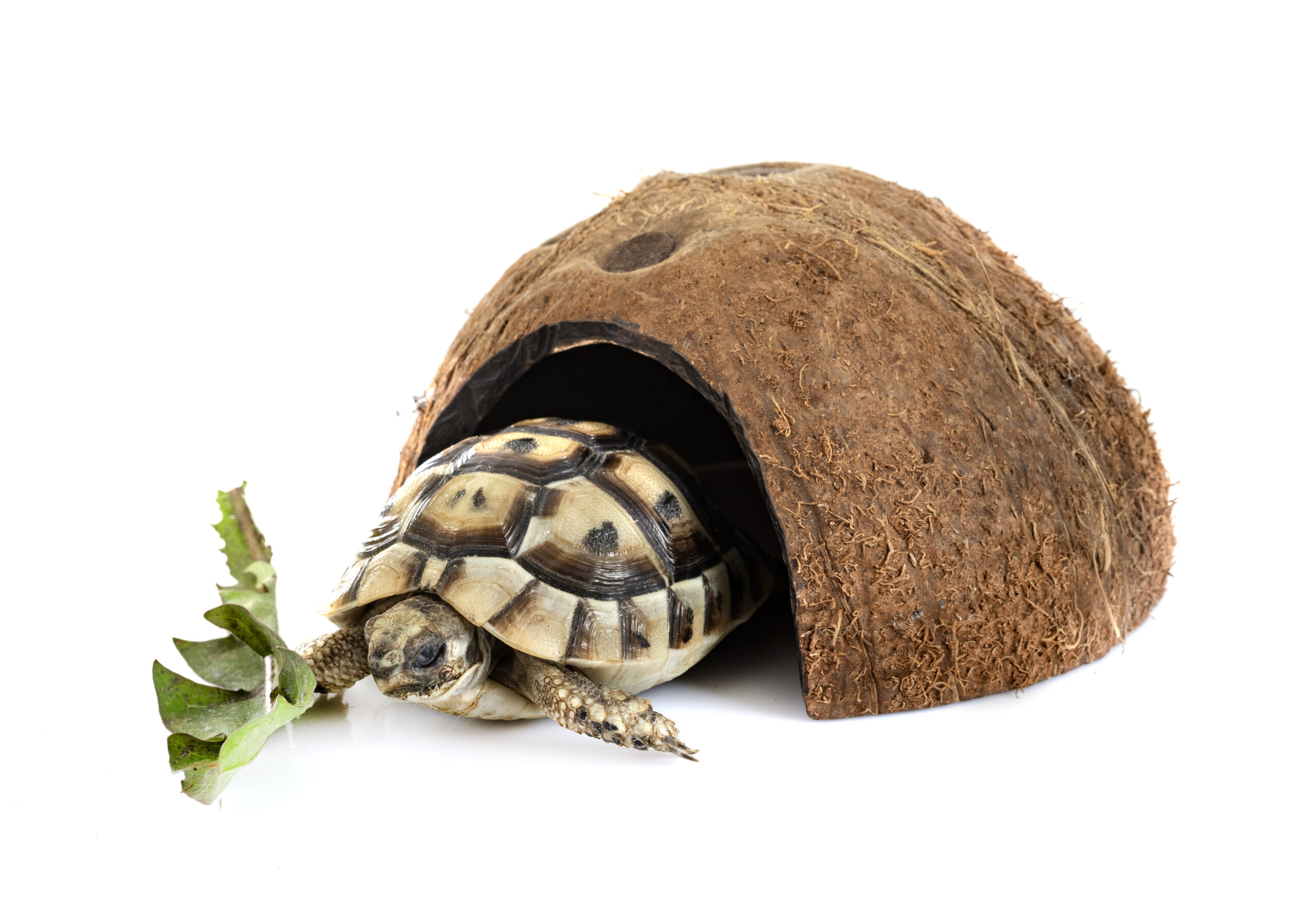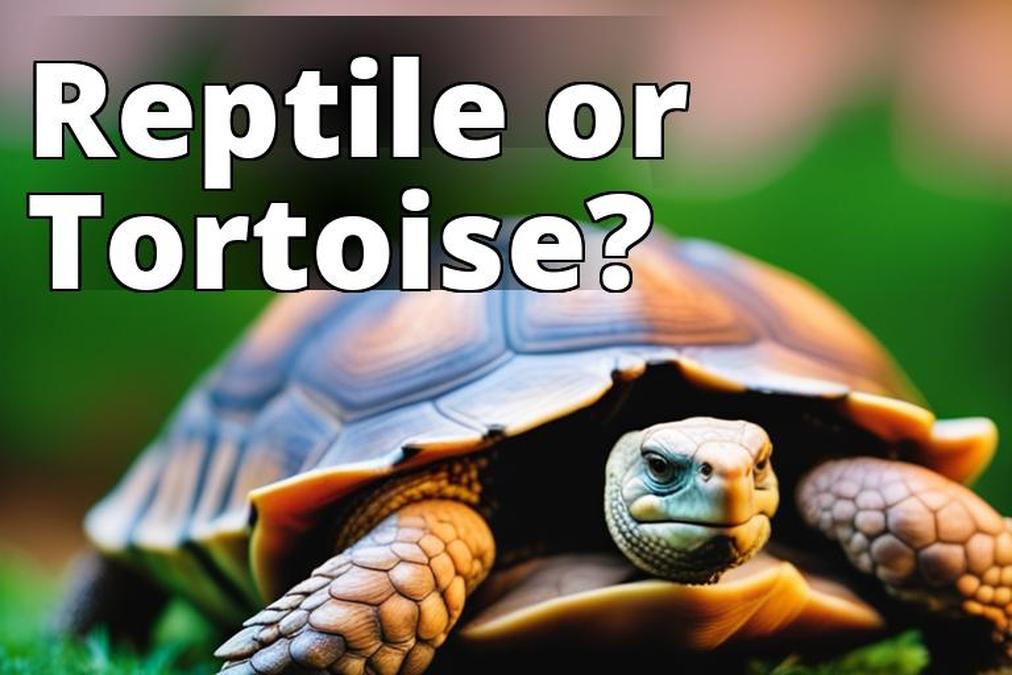In a peaceful garden, a tortoise slowly moves through the grass, creating a calm atmosphere. The ancient creature with its home on its back is not only a wonder of nature but also a lovely companion for those who appreciate the slower, more peaceful lifestyle. To choose the best tortoise as a pet, consider their unique companionship that has existed since the time of dinosaurs. Each tortoise species carries a unique tale etched on its shell, waiting for the right companion to read the stories.
Diving into the world of tortoises is like stepping into a living library. The most popular tortoises are the Russian Tortoises, known for their vibrant colors and curious eyes, the Pancake Tortoises, which have uniquely flat shells, and the Red-Footed Tortoises, known for their gentle nature and a touch of red on their limbs.
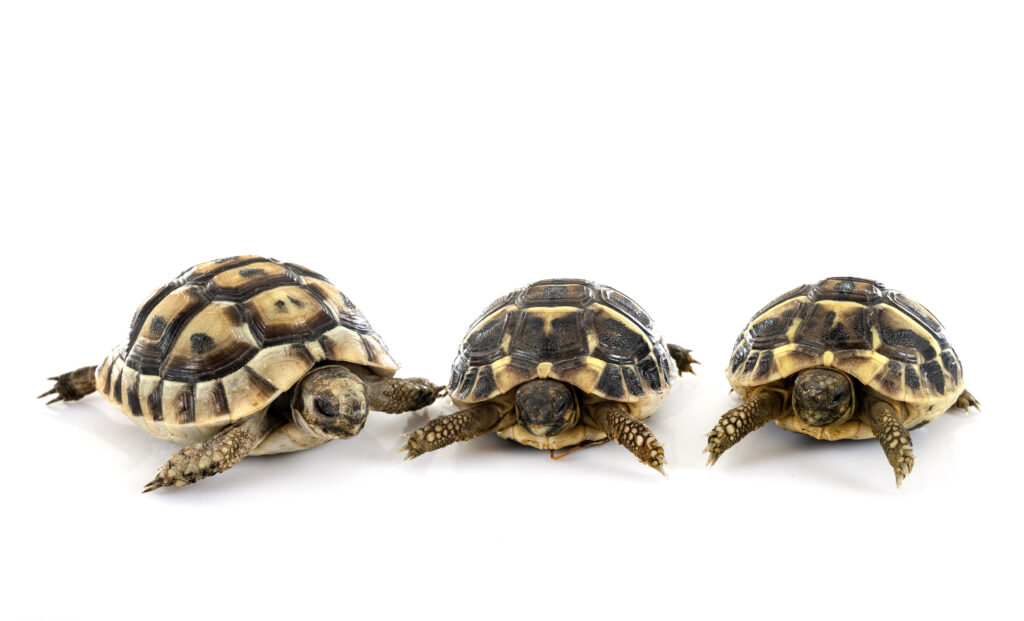
Finding the perfect tortoise as a pet is like finding a treasure trove of natural wonders.By understanding the needs, behavior, and space needs of each species, you will not only learn about tortoises, but also move closer to finding a companion that suits your lifestyle.
This quest isn’t just enlightening; it’s filled with moments of awe, laughter, and a growing appreciation for the natural world. Tortoises bring a piece of the wild into our homes with their unique patterns and behaviors. Finding the perfect pet tortoise is not just a decision, it’s an exciting adventure and a story to be shared.
Different Species of Tortoise
There are different kinds of pet tortoises with unique traits and care needs. Some of the species highlighted across different sources include:
Russian Tortoise
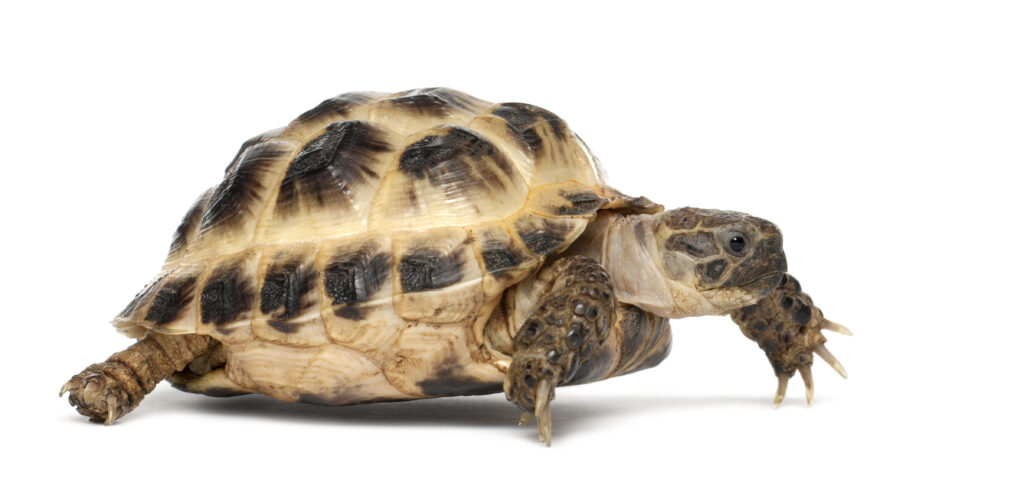
General Information
Known for being low maintenance, curious, and active, making them a good choice for beginners.
- Scientific Name: Agrionemys horsfieldii
- Adult Size: 5-10 inches (13-25 cm)
- Life Expectancy: 20-40 years
| Pros | Cons |
|---|---|
| Hardy and adaptable | Requires a relatively large enclosure |
| Moderate size makes handling easier | Diet can be varied, requiring some knowledge of nutrition |
| Generally good health | Prone to respiratory issues if kept in damp conditions |
Interesting Facts:
- They are known for their ability to withstand the cold temperatures of their native regions, which include Afghanistan, Northern Pakistan, and Uzbekistan.
- Unlike other tortoises, Russian Tortoises are more tolerant of cooler temperatures, but they still need a warm environment to thrive.
- They are highly active, especially in the morning and late afternoon.
Pancake Tortoise
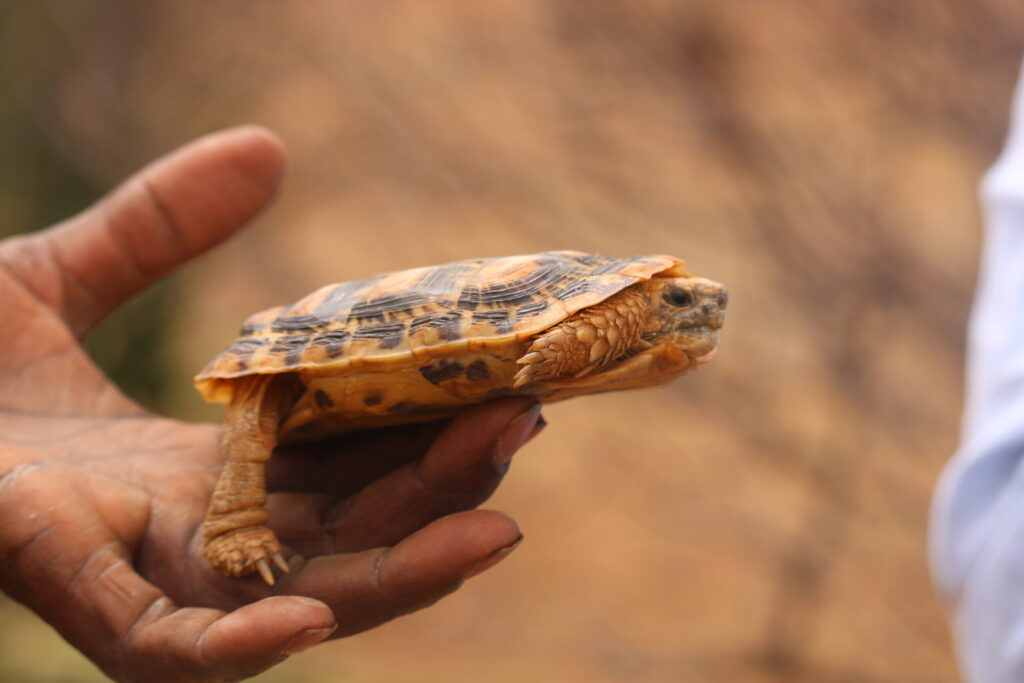
General Information
Known for their unique flat shell.
- Scientific Name: Malacochersus tornieri
- Adult Size: 5.90 – 7.08 inches
- Life Expectancy: More than 20 years, with many living well over 35 years
| Pros | Cons |
|---|---|
| Unique flat shell and agility | Requires a specialized diet and environment |
| Can live in communal setups | Due to their unique shell, they can be prone to shell deformities if not cared for properly |
| Not prone to stress when handled correctly | Threatened species, ethical considerations for keeping them |
Interesting Facts:
- They are called Pancake Tortoises due to their flat, flexible shell, which is unique among tortoises.
- They possess a unique ability to climb and squeeze into rock crevices to escape predators, thanks to their flexible shell.
- Native to rocky hillsides in Kenya and Tanzania, their unusual shell allows them to thrive in environments other tortoises can’t.
Hermann’s Tortoise

A small to medium-sized species that’s often recommended for beginners.
General Information
- Scientific Name: Testudo hermanni
- Adult Size: Information not available
- Life Expectancy: Information not available
| Pros | Cons |
|---|---|
| Known for their mild temperament | Require a lot of outdoor space |
| Beautifully colored shells | Can be tricky to care for correctly |
| Popular among reptile keepers | Specific dietary needs |
Interesting Facts:
- They are native to the Mediterranean and are one of the most popular pet species among reptile keepers due to their calm personalities and beautifully colored shells.
- Despite their relatively manageable size, they can be tricky to care for correctly, especially when it comes to their dietary and outdoor space needs.
Each of these tortoises has unique attributes and care requirements that might suit different individ
Egyptian Tortoise

General Information
Known also as Kleinmann’s Tortoise, they are one of the smaller species and are popular family pets.
- Scientific Name: Testudo kleinmanni
- Adult Size: 4-5 inches
- Life Expectancy: Up to 70-100 years
| Pros | Cons |
|---|---|
| Compact size makes them suitable for indoor living | Require a warm climate year-round |
| Low maintenance diet | Vulnerable species, ethical considerations for keeping them |
| Unique appearance | Requires UVB lighting and a proper enclosure |
Interesting Facts:
- They are one of the smallest tortoise species in the northern hemisphere.
- Their natural habitat extends across the coastal desert strip in Libya and Egypt.
Marginated Tortoise

General Information
Another species suitable for beginners.
- Scientific Name: Testudo marginata
- Adult Size: 12-15 inches
- Life Expectancy: 100+ years
| Pros | Cons |
|---|---|
| Hardy and adaptable | Require outdoor space |
| Moderate growth rate | Specific dietary needs |
| Generally good health | Require hibernation period |
Interesting Facts:
- They possess a unique flared rear marginal scutes, hence the name.
- Native to Greece, Italy, and the Balkans, they are the largest European tortoises.
Leopard Tortoise
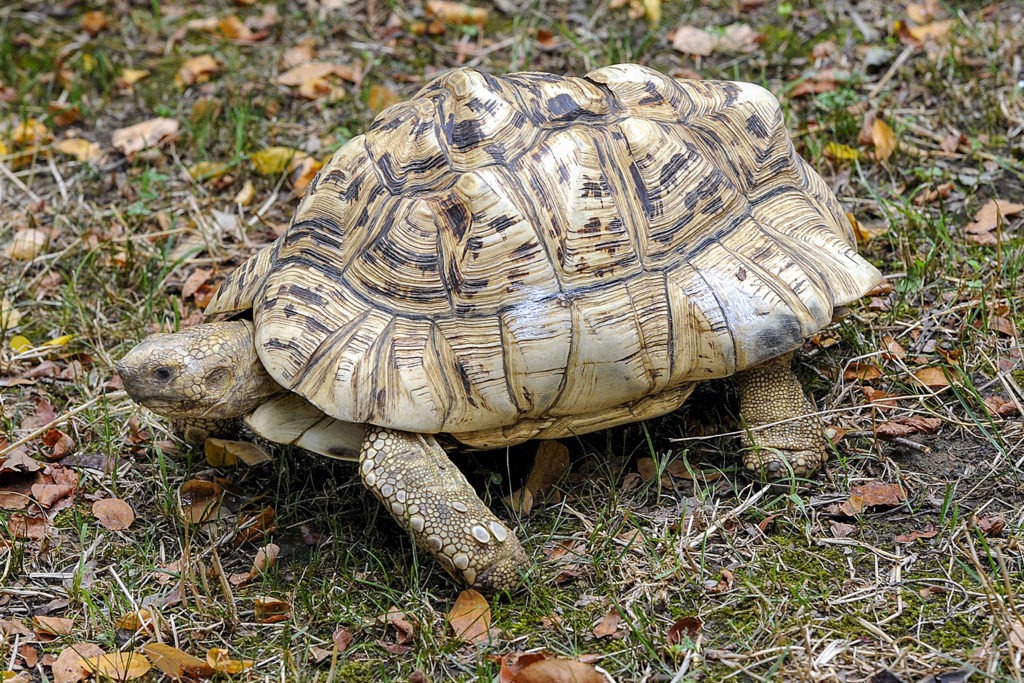
General Information
A larger species with a distinctive spotted shell.
- Scientific Name: Stigmochelys pardalis
- Adult Size: 10-18 inches
- Life Expectancy: 50-100 years
| Pros | Cons |
|---|---|
| Unique and attractive shell pattern | Large size requires ample space |
| Generally good health | Cannot tolerate cold, need warm climate |
| Calm temperament | Specific dietary needs |
Interesting Facts:
- They are the fourth largest species of tortoises in the world.
- Named for their leopard-like spotted shell.
Red-Footed Tortoise
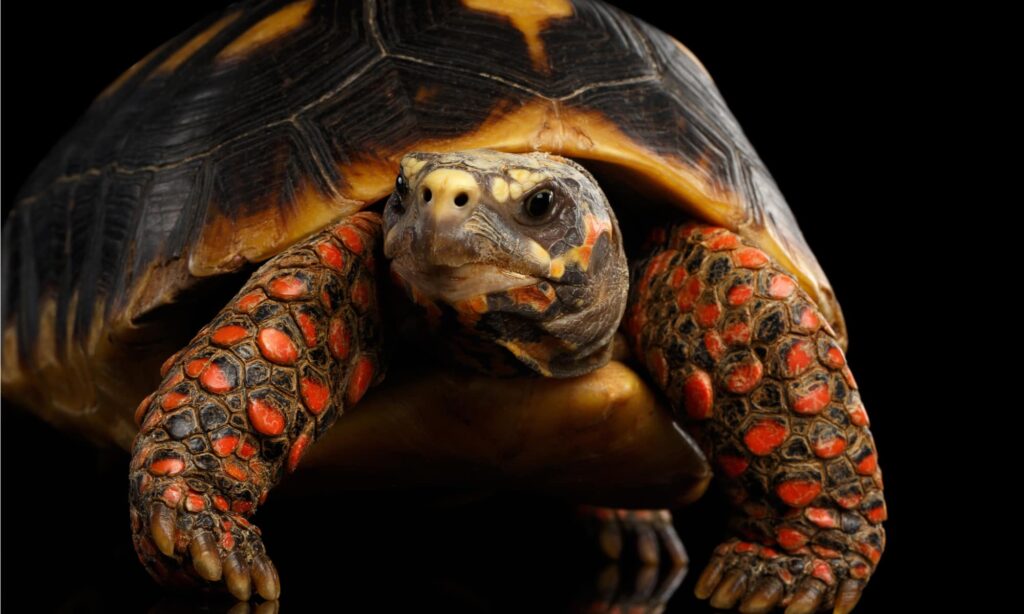
General Information
Known for their red-marked legs and are relatively easy to care for.
- Scientific Name: Chelonoidis carbonaria
- Adult Size: 11-14 inches
- Life Expectancy: 50+ years
| Pros | Cons |
|---|---|
| Social and friendly demeanor | Require a varied diet |
| Hardy and adaptable | Need a large outdoor enclosure |
| Unique appearance with red scales | Sensitive to cold temperatures |
Interesting Facts:
- They are known for their red-scaled limbs and head.
- Native to South America, they thrive in a variety of habitats.
Indian Star Tortoise

Known for the star-like patterns on their shells.
General Information
- Scientific Name: Geochelone elegans
- Adult Size: 8-12 inches
- Life Expectancy: 30-80 years
| Pros | Cons |
|---|---|
| Unique star-patterned shell | Require a warm and humid climate |
| Moderate size | Not recommended for handling |
| Herbivorous diet | Vulnerable to respiratory issues if not kept warm |
Interesting Facts:
- Their star pattern on the shell is unique and serves as camouflage.
- They are considered sacred and are often associated with Hindu mythology.
Sulcata Tortoise

General Information
Also known as the African Spurred Tortoise, they are the third largest species of tortoise in the world and require a lot of space.
- Scientific Name: Centrochelys sulcata
- Adult Size: 24-30 inches
- Life Expectancy: 70+ years
| Pros | Cons |
|---|---|
| Extremely hardy and adaptable | Very large size requires ample space |
| Long lifespan | Can be destructive due to their size |
| Easy to feed | Not suitable for cold climates |
Interesting Facts:
- They are the third largest species of tortoise in the world.
- Native to the Sahara Desert, they are well-adapted to arid conditions.
Greek Tortoise
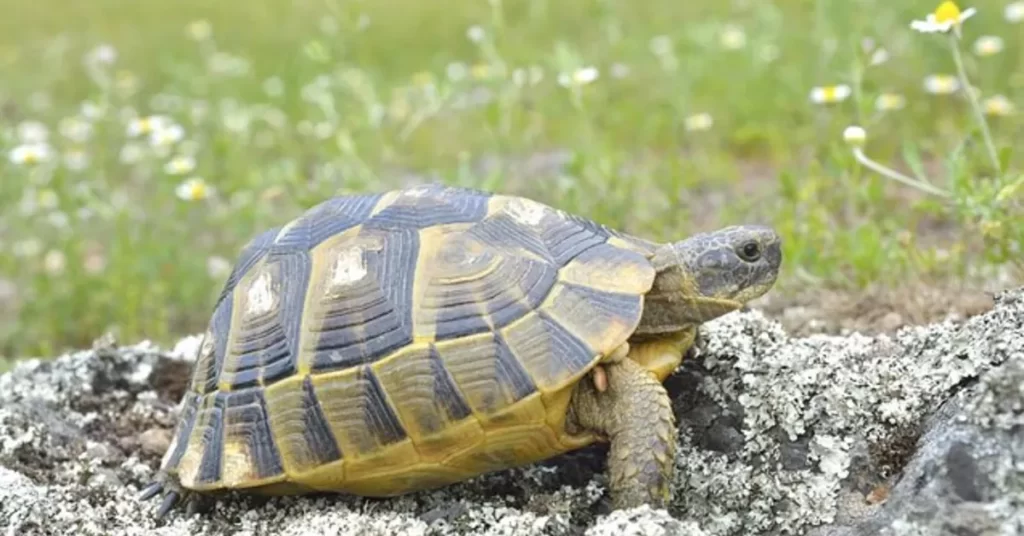
Known for their outgoing personalities and distinct shell patterns.
General Information
- Scientific Name: Testudo graeca
- Adult Size: 5-8 inches
- Life Expectancy: 50-125 years
| Pros | Cons |
|---|---|
| Moderate size | Require outdoor space for grazing |
| Easy to care for with a proper setup | Need hibernation period |
| Long lifespan | Sensitive to respiratory issues if kept in damp conditions |
Interesting Facts:
- This tortoise species is one of the oldest and can be found in North Africa, Southern Europe, and Southwest Asia.
- They possess a highly domed shell with varying patterns and colors.
The variety in species provides a range of options for potential pet owners depending on their living conditions, experience, and what they are looking for in a pet tortoise. Research and choose a species that you can properly care for because each species has specific needs and health concerns.
Considerations Before Getting a Pet Tortoise
Embarking on the tortoise companionship journey is exciting, but requires a solid groundwork to ensure both you and your shelled buddy have a smooth ride. Here are some key considerations to mull over:
- Space: Tortoises, despite their slow nature, enjoy roaming around. The space you have available, be it indoors or outdoors, will greatly influence your choice of tortoise species. Some tortoises demand a vast outdoor area to roam freely, while others are content with indoor spaces.
- Climate Compatibility: Tortoises are sensitive to temperature and humidity. It’s essential to choose a species that can thrive in your region’s climate or be ready to create a suitable environment for them.
- Dietary Needs: A tortoise’s diet can range from herbivorous to omnivorous. Researching and providing a balanced diet is crucial for their health and happiness. And no, they don’t dine on pizza, even if they live in a half-shell!
- Long-term Commitment: Tortoises are known for their long lifespans. This isn’t a fleeting companionship but a long-term commitment. It’s like getting into a lifelong friendship where you’re the one responsible for snacks.
- Veterinary Care: Having access to a vet who is experienced with tortoises is crucial. Regular check-ups will ensure your tortoise remains in good health.
- Legal Regulations: Before bringing a tortoise home, ensure it’s legal to own one in your area. Some species are protected or endangered and require special permits.
- Exercise and Stimulation: Yes, tortoises do exercise! They love to explore, climb, and even swim (some species). Ensuring they have a stimulating environment will contribute to their overall well-being.
- Cost: Setting up a proper habitat, feeding, and healthcare are ongoing costs. Tortoises may move slowly, but the costs associated with their care can add up fast!
- Education: Educating yourself and your family on the specific needs and behaviors of your chosen tortoise species will pave the way for a harmonious co-existence.
- Rescue or Purchase: Consider adopting a tortoise from a rescue center instead of purchasing one. It’s a kind-hearted choice that provides a needy tortoise with a loving home.
In the shell of it all, embracing tortoise guardianship is a unique, rewarding experience. With the right preparation and understanding, you’re on the pathway to forming a remarkable bond with a creature that boasts a lineage dating back to the dinosaurs. Now that’s a friendship with some serious backstory!
Can you get Pet Insurance for a Tortoise?
Yes, you can indeed get pet insurance for a tortoise, although the options may be somewhat limited. Here are some key points regarding pet insurance for tortoises:
- Insurance Companies:
- Nationwide is a primary company that offers insurance services for a variety of exotic pets, including tortoises.
- Besides Nationwide, smaller insurance companies like Pet Assure also provide coverage for reptiles including tortoises.
- Coverage:
- Tortoise insurance helps reduce the risk of costs related to your tortoise in case of unfortunate events.
- Insurance coverage can provide financial support for veterinary fees, death, or theft. For example, ExoticDirect offers insurance plans that provide up to £2,500 of coverage for these situations.
- Cost:
- The cost of insuring a tortoise can vary, for instance, ExoticDirect‘s highest level of cover “Premier” costs £143.52 a year or 10 instalments of around £14.35.
- Value Assessment:
- If you don’t have enough savings to cover emergencies, getting tortoise insurance can be helpful. Consider that you could spend more on the insurance policy than you receive in benefits for your tortoise’s entire life.
- Alternative Insurance:
- Pet Assure mentions a low-cost pet insurance alternative to help maintain a healthy lifestyle for your tortoise3.
- Important Consideration:
- It’s crucial to evaluate the cost, coverage, and the specific needs of your tortoise before deciding on an insurance plan.
Getting pet insurance for your tortoise can provide peace of mind, especially when it comes to potential vet bills. Compare insurance providers, understand their coverage, and choose the best plan for you and your tortoise.
Can Tortoises Live With Other Pets?
Introducing a tortoise to a home with existing furry or feathered friends? It’s like adding a slow-paced, shelled sage to your lively family orchestra. But before you set the stage for this interspecies camaraderie, let’s tune into some important notes.
- Species Compatibility:
- Tortoises, with their slow and steady nature, are the pacifists of the pet realm. However, not all pets appreciate the calm demeanor of a tortoise. Curious cats or playful dogs might see them as toys, which could lead to stressful or dangerous situations for your shelled buddy. You should never leave them unsupervised.
- Territorial Temperaments:
- While tortoises are known to be tranquil, they can be quite territorial. The same goes for other pets; a dog might not take too kindly to a tortoise encroaching on its turf.
- Health Concerns:
- Different species harbor different kinds of germs. A tortoise might carry salmonella, which could pose a risk to you and your other pets. On the flip side, a tortoise’s immune system isn’t designed to combat the common germs your dog or cat might carry.
- Separate Spaces:
- It’s wise to have separate living quarters for your tortoise and other pets. A tortoise will appreciate having its own calm corner, away from the bustling energy of a playful pup or curious cat.
- Supervised Interaction:
- If you decide to introduce your tortoise to other pets, make sure it’s under careful supervision. It’s like overseeing a meeting between a sage and a playful sprite – amusing yet needs monitoring.
- Educate Other Family Members:
- Ensure everyone in the household understands the needs and behaviors of both the tortoise and other pets. It’s a collaborative effort to create a harmonious living environment for all.
- Consult a Vet:
- Before making introductions, it’s a smart move to consult with a vet who understands the nuances of interspecies interactions.
- Respect Their Differences:
- Every pet, shelled or not, brings its own unique charm and set of requirements to the table. By acknowledging and respecting their differences, you’re setting the stage for a more harmonious household.
To successfully bring different species together, it is important to be well-prepared, provide education, and incorporate a bit of humor. Your home can be a peaceful place for all residents, both shelled and non-shelled, as they each bring their own unique contributions to your life.
Best Tortoise as a Pet Conclusion
Having a tortoise as your companion on a journey is like discovering a peaceful and enriching part of nature, right in your own backyard.The choice of a tortoise as a pet, though seemingly simple, opens up a kaleidoscope of considerations ranging from species selection, space, and climate compatibility to long-term commitment and healthcare preparations. Different types of tortoises that can be kept as pets reveal interesting characteristics and requirements of these ancient animals. Russian Tortoises and Indian Star Tortoises have different characteristics but both require specific care.
The tortoise represents more than just its slow pace and tough shell. It embodies patience, endurance, and a peaceful connection with nature. Having a tortoise as a pet means having a companion and discovering the wonders of nature through their slow movements.
Interacting with your tortoise while it sunbathes teaches you about finding contentment and getting in tune with the peaceful nature of the wild.So as you ponder on the prospect of tortoise companionship, remember, it’s not just about sharing your space with a pet; it’s about welcoming a slice of the wild, a dash of serenity, and a lifelong friend with stories etched on its shell.





